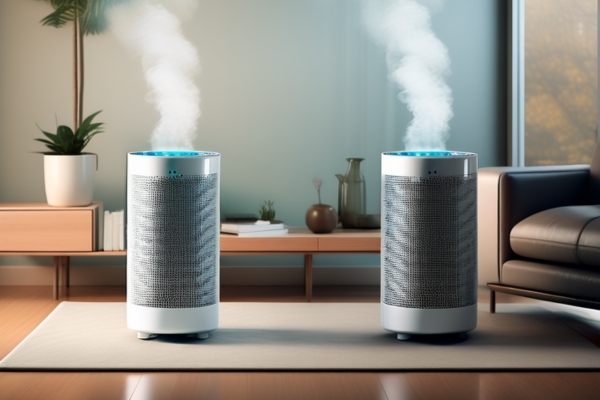The Disadvantages of Air Purifiers
Air purifiers have become increasingly popular in recent years due to their ability to improve indoor air quality and alleviate respiratory issues. However, like any other product, air purifiers are not without their drawbacks.
In this blog article, we will explore the disadvantages of air purifiers and provide you with a comprehensive understanding of their limitations.
Noise Levels:
Air purifiers can be quite noisy, especially when they are running at higher speeds. This can be a significant disadvantage for people who live in apartments or shared spaces, as the noise can be disruptive and disturbing to others. Some air purifiers can produce noise levels of up to 50 decibels, which is equivalent to the noise level of a vacuum cleaner.
Energy Consumption:
Air purifiers can consume a significant amount of energy, especially if they are running continuously. This can increase your electricity bill and contribute to your carbon footprint. Some air purifiers can consume up to 200 watts of power, which can be a significant disadvantage for those who are concerned about energy efficiency.
Cost:
Air purifiers can be expensive, especially high-end models with advanced features. The cost of an air purifier can range from a few hundred dollars to over a thousand dollars, depending on the type and quality of the device. This can be a significant disadvantage for those who are on a budget or who do not want to invest in a expensive product.
Maintenance:
Air purifiers require regular maintenance to ensure that they are working effectively. This can include cleaning the filter, checking for leaks, and replacing the filter regularly. Neglecting maintenance can lead to reduced air purification capabilities and may even cause the device to break down.
Filter Replacement:
Air purifiers use filters to remove pollutants and allergens from the air. However, these filters need to be replaced regularly, which can be a disadvantage for those who forget or neglect to do so. The frequency of filter replacement can vary depending on the type of air purifier and the amount of use.
Limited Coverage:
Air purifiers have limited coverage, which means that they can only purify a specific area of the room or home. This can be a disadvantage for those who have a large living space or who want to purify the entire home. Some air purifiers may have multiple settings for different rooms, but this can still be a limitation for those who want to purify the entire home.
UV Light Exposure:
Some air purifiers use UV light to kill bacteria and viruses. However, exposure to UV light can be harmful to human skin and eyes. While the amount of UV light emitted by air purifiers is generally safe, it can still be a disadvantage for those who are concerned about exposure to UV light.
Ozone Production:
Some air purifiers produce ozone as a byproduct of the purification process. While ozone can be effective at removing pollutants, it can also be harmful to human health at high concentrations. Prolonged exposure to ozone can cause respiratory problems and irritate the lungs.
Not Suitable for Everyone:
Air purifiers are not suitable for everyone, especially those who have certain medical conditions. For example, people with asthma or other respiratory conditions may find that air purifiers exacerbate their symptoms. Additionally, air purifiers may not be effective in areas with high levels of pollution or in areas with poor air circulation.
No Scientific Evidence:
There is limited scientific evidence to support the effectiveness of air purifiers in improving indoor air quality. While some studies have shown that air purifiers can remove pollutants and improve respiratory health, other studies have found little to no difference in air quality compared to non-purified air.
Conclusion:
While air purifiers can be effective at improving indoor air quality, they are not without their disadvantages. Noise levels, energy consumption, cost, maintenance, filter replacement, limited coverage, UV light exposure, ozone production, and lack of scientific evidence are all potential disadvantages to consider when deciding whether or not to purchase an air purifier.
Before investing in an air purifier, it is important to weigh the pros and cons and consider your specific needs and circumstances.


